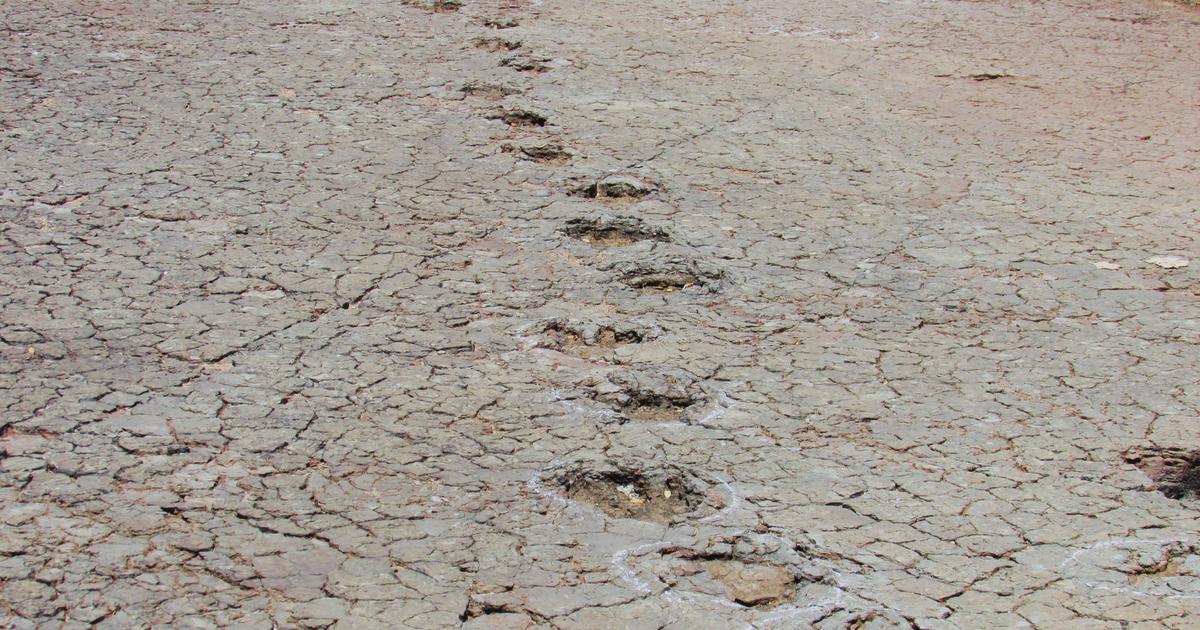A team of paleontologists found matching dinosaur footprints on what are now two different continents, separated by thousands of miles of ocean.
The footprints, dating back to the Early Cretaceous period, were found in Brazil and in Cameroon, researchers wrote in a study published Monday by the New Mexico Museum of Natural History & Science. The discovery shows where land-dwelling dinosaurs were able to cross freely between South America and Africa before the two continents split apart millions of years ago.
Land shifts
The more than 260 footprints researchers studied were found impressed into mud and silt along ancient rivers and lakes, with more than 3,700 miles separating the ones in South America and Africa, according to the study. Paleontologists determined they were similar in age, shape and in geological and plate tectonic contexts.
Dinosaurs made the tracks 120 million years ago on a single supercontinent known as Gondwana, which had broken off from the larger landmass of Pangea — once the world’s only continent, Southern Methodist University paleontologist Louis Jacobs said.
“One of the youngest and narrowest geological connections between Africa and South America was the elbow of northeastern Brazil nestled against what is now the coast of Cameroon along the Gulf of Guinea,” Jacobs, the lead study author, said. “The two continents were continuous along that narrow stretch, so that animals on either side of that connection could potentially move across it.”
The continents now known as Africa and South America started to split around 140 million years ago, researchers said. The south Atlantic Ocean eventually filled the void.
Basins formed as the continents pulled apart; rivers flowed and lakes formed in those basins, Jacobs said. The basins where the footprints were discovered can be found on both sides of the split.
What we know about the dinosaurs
Most of the footprints were made by three-toed theropods, a group of carnivorous dinosaurs, researchers said. There were also prints left behind by sauropods or ornithischians.
“Plants fed the herbivores and supported a food chain,” Jacobs said. “Muddy sediments left by the rivers and lakes contain dinosaur footprints, including those of meat-eaters, documenting that these river valleys could provide specific avenues for life to travel across the continents 120 million years ago.”
#Matching #dinosaur #footprints #miles #continents
